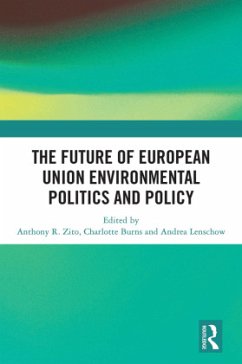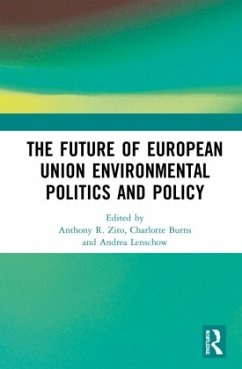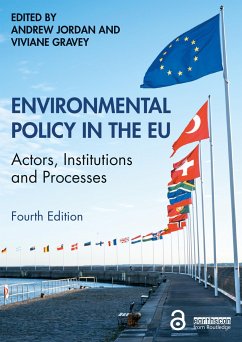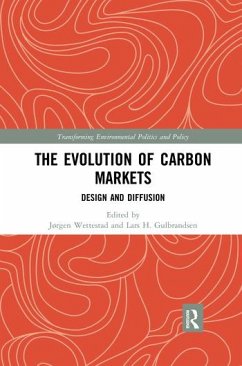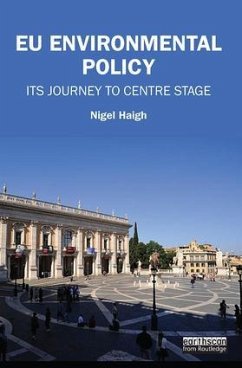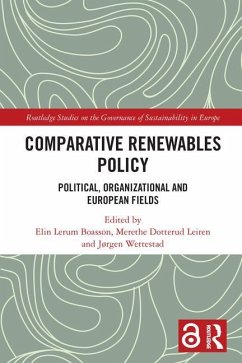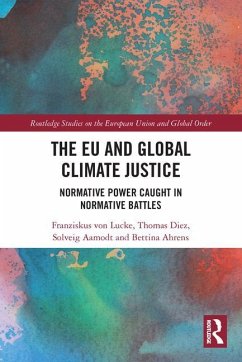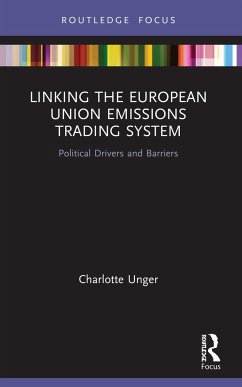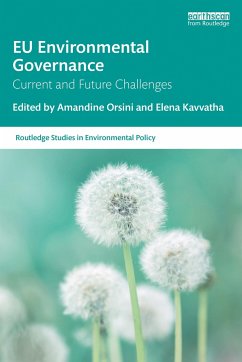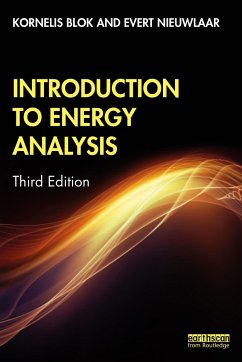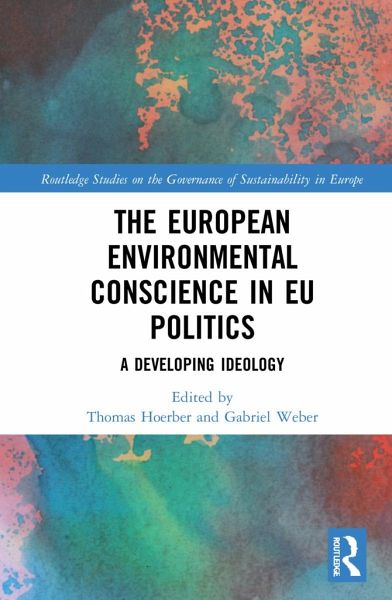
The European Environmental Conscience in EU Politics
A Developing Ideology
Herausgegeben: Hoerber, Thomas; Weber, Gabriel
Versandkostenfrei!
Versandfertig in 6-10 Tagen
154,99 €
inkl. MwSt.
Weitere Ausgaben:

PAYBACK Punkte
77 °P sammeln!
Based on empirical studies of European energy and environmental policies, this book suggests that, in combination, these two policy fields form a consensus in the EU which might also become the basis for a new European ideology, namely European 'sustainabilism'.It asks why an environmental conscience has grown since the late 1960s in the industrialised world and shows that whilst there is undeniable environmental degradation during this time, and that a European environmental conscience has mainly developed through successive steps of European integration in energy policy. In this connection b...
Based on empirical studies of European energy and environmental policies, this book suggests that, in combination, these two policy fields form a consensus in the EU which might also become the basis for a new European ideology, namely European 'sustainabilism'.
It asks why an environmental conscience has grown since the late 1960s in the industrialised world and shows that whilst there is undeniable environmental degradation during this time, and that a European environmental conscience has mainly developed through successive steps of European integration in energy policy. In this connection between energy and the environmental we find one driver for European integration and indeed European identity. If sustainabilism should become a European ideology, it will substantially influence the way future Europeans will live.
This book will be of key interest to scholars and students of European Studies, International Relations, Political Science, History, Economics, Sustainability Studies, Environmental and Energy Policies in Europe.
It asks why an environmental conscience has grown since the late 1960s in the industrialised world and shows that whilst there is undeniable environmental degradation during this time, and that a European environmental conscience has mainly developed through successive steps of European integration in energy policy. In this connection between energy and the environmental we find one driver for European integration and indeed European identity. If sustainabilism should become a European ideology, it will substantially influence the way future Europeans will live.
This book will be of key interest to scholars and students of European Studies, International Relations, Political Science, History, Economics, Sustainability Studies, Environmental and Energy Policies in Europe.




